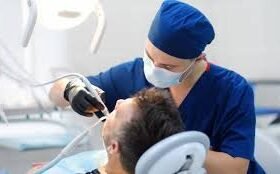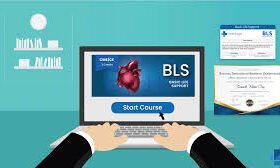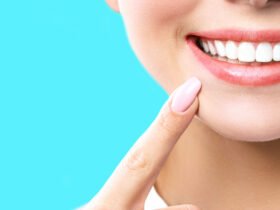Looking for what helps with muscle recovery?
There are many techniques for muscle recovery, but do all work? No, right! So, to help you, we’ve listed only the top expert-recommended tips that can help your muscle recovery in no time.
Moreover, using red light therapy increases muscles’ workload capacity, ensuring you can do more workout sessions.
Sneak Peak On Quick Muscle Recovery
The following list will help you to get muscle recovery faster:
- Protein Pre and Post-Workout
- Maintaining a Balanced Diet
- Keeping Yourself Hydrated
- Use of Supplements
- Red Light Therapy
- Avoid Alcohol and Tobacco
- Compression Garments
Types of Muscle Recovery Processes
The muscle recovery process can be categorized into
- Nutrition,
- Supplements
- Treatment
- Other strategies
The majority of protein sources will enhance muscle repair and development. Similarly, carbohydrates replenish glycogen stores that are used to generate energy output and absorption during practice.
Hydration also occurs in muscle recovery. The right muscle recovery supplements include protein powders, creatine, and BCAAs that maintain the repair of the muscle and decrease the soreness of the muscles.
Other treatments include massages, foam rolling, and contrast baths to help muscle tension and inflammation.
What Helps With Muscle Recovery? (7 Effective Strategies)

- Protein Pre and Post-Workout
For Pre Workout
Some people prefer to take protein before their workout session. According to them, it helps them reach their daily protein targets, resulting in faster muscle recovery.
Some studies confirm that although pre- and post-workout protein intake may support muscle recovery and development, not maintaining a dietary protein diet can slow muscle recovery time.
For Post Workout
Intense workouts can damage muscle fibers. Protein supplements after a workout can give the body the raw materials required for muscle recovery.
According to research, consuming 1.6g (gram) of protein per kg (kilogram) of your body weight is sufficient to maximize muscle growth.
| The “International Society of Sports” recommends a wider range: 1.4 to 2 g protein/kg for well-maintained muscle mass. |
- Maintaining a Balanced Diet
A balanced diet ensures you don’t get any nutrient deficiencies that may hinder muscle recovery time.
So, this is what you need to do:
- Keeping Yourself Hydrated
Hydration helps to auto-regenerate muscle repair. You tend to get dehydrated when you exercise in intense weather. So, to avoid such issues, it is recommended that you take 1.5 liters of water for every kg you lose daily. A review found that cherry juice can significantly support muscle recovery.
- Use of Supplements
Certain supplements can also benefit muscle recovery and support diet and workout sessions. However, we recommend taking these supplements from authentic sources to avoid side effects.
Two out of five Americans (46%) say they regularly intake protein shakes and drinks from whole food or powder. In 2019, CRN (Council of Responsible Nutrition) reported that around 77% of Americans take dietary supplements, including protein supplements.
- Red Light Therapy
Red light therapy works by exposing one to light waves of particular lengths, which aim:
These lightwaves activate the mitochondria in cells, stimulating the production of adenosine triphosphate, a chemical that feeds crucial cellular functions like repair and growth.
Moreover, the wavelength produced by red light treats inflammation by limiting pro-inflammatory cytokines and expediting anti-inflammatory responses. Red Light Therapy at home offers an accessible way to harness this technology, promoting natural healing and revitalization conveniently from the comfort of your own space.
- Avoid Alcohol and Tobacco
Alcohol and Tobacco should also be refrained from, as they negatively impact various healing processes in the body. Alcohol disrupts protein synthesis and nutrient absorption and is also a diuretic.
These factors impair the muscles’ ability to repair and restore the ones that were damaged during the workout. Similarly, tobacco smoke contains several toxins that impede healthy circulation and limit nutrient transportation and delivery to different muscles to prolong recovery.
Ultimately, avoiding these drugs ensures that the body recovers at a faster rate and is able to repair muscle tissue and replenish energy sources.
- Compression Garments
Compression Garments are important as they improve blood circulation which in turn leads to reduced muscle swelling and soreness.
The garment achieves this through exerting graduated pressure on muscles, which in turn enhances venous return, thus flushing metabolic waste products out, notably lactic acid, which may result in muscle fatigue and tenderness. Consequently, the body enhances its capacity to deliver oxygen and nutrients to the muscles, ensuring tissue repair recurs and lowering the chances of delayed onset muscle soreness.
Causes of Poor Muscle Recovery
Poor muscle recovery may be due to many factors leading to lack of rest or insufficient nutrient intake. Overtraining without taking enough water or suffering from chronic stress may accelerate the recovery of the muscles.
Poor muscle recovery is a result of lack of rest, which prevents them from repairing and growing, and insufficient nutrients. This prevents the body from replenishing energy and repairing damaged cells.
Dehydration may also prevent nutrient delivery to the muscles and cause soreness. Chronic stress may also inhibit repair due to increased cortisol and inflammation.
It is critical to ensure optimal recovery from poor muscle recovery through adequate rest, nutrition, water intake, and addressing stress challenges.
Read Also:- WellHealth How to Build Muscle Tag
What is the Best Thing to Take for Muscle Recovery?
Protein may be the ideal supplement for muscle recovery. It is a food-based source of essential amino acids responsible for creating new muscles and repairing damaged ones. Protein ensures the synthesis of new cranky muscle tissue.
It appears where it is easily ingested and contains high quantities of branched-chain amino acids that help muscle recovery.
Protein consumption following exercise raises the rate of muscle protein anabolism, facilitating recovery and muscle adaptation to exercise.















Leave a Reply